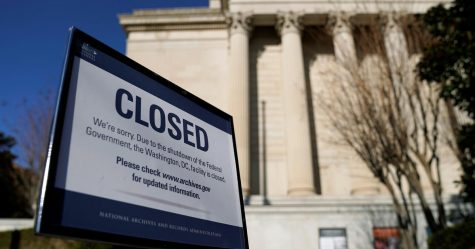To Wall or Not to Wall: The Government Shutdown
March 3, 2019
The United States government was partially shut down from December 21st, 2018 to January 25th, 2019. Over the course of these 35 days, government officials had been working without pay, uncertain of when the shutdown would end. But on January 25th, President Trump signed a bill that funded the government for another three weeks. According to the Financial Rating Agency, the shutdown cost the U.S. government over $6 billion.
Here at University School, views on the government shutdown are undoubtedly mixed. At the most recent meeting of the Society of Skeptics, there was intense debate over who should be blamed for the shutdown and whether the Democrats should fund President Trump’s proposed wall. However, rehashing the same arguments proposed at the Society of Skeptics would be redundant. It is ironic that nowadays many Americans view the issue of government shutdowns through the lens of partisan politics as opposed to seeing how it negatively impacts people’s lives. After going through the longest government shutdown in our country’s history, it is important that we look at the government shutdown through the eyes of empathy, as shutdowns impact millions of Americans whose livelihoods depend on the paycheck they receive from the government.
The shutdown primarily impacted airport security, food inspection, parks, museums, and science research. To put that into perspective, a shutdown of such magnitude at University School would cut funding from our maintenance, food services, and several of our academic departments. The impact of this shutdown would be damaging both to students and US itself. Many Americans agree that shutting down the government should not be an option, especially when used for political aim. Senior Trey Hammond corroborates this statement, when he says: “It [a government shutdown] has its place in our governmental system. Specific to this government shutdown, it is scary that it could set the precedent that any president, if they don’t get what they want, can shut down the government. It’s not just the president, but it’s mainly the president. It is unfair to a lot of government workers, and it has an effect on a good amount of people. I’m concerned for both the people as well as the precedent this could set for American politics moving forward.”
Ultimately, the partial government shutdown negatively impacts not only the government itself, but also those who are responsible for making the government run efficiently. As opposed to debating the issue of whether we need a border wall, we should debate whether or not it should be lawful to deny salaries to workers for a long period of time. With the government open for another three weeks, both the President and congressional leaders must dedicate this time to finding any solution possible. The American people must not be held hostage as a result of partisan politics in Washington.

